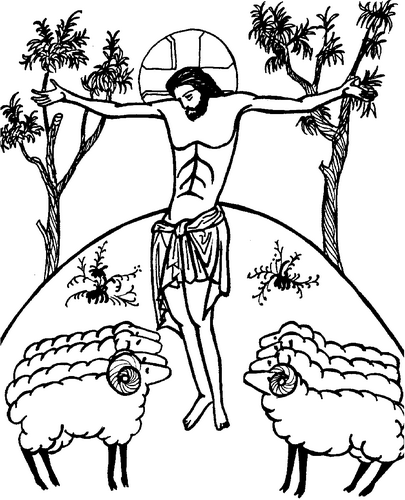The Weakness of Man
1 Απριλίου 2010
It is counter-intuitive that God saves man through His own weakness. The irony of the Divine Reversal has provided endless material for the hymnographers of the Church through the centuries. The Strong becomes weak, the Sinless takes on our sin, the Rich becomes poor, God becomes man – the whole of the gospel seems to be a Divine irony.
This irony has a beauty that has always drawn me. Sometimes the imagery drawn out in a hymn within the Church becomes so poignant I want to stop the service just to savor it (of course I can’t do this).
However, I think there is something that makes us want to keep our irony Divine and minimize it in our own lives. St. Paul says that he “glories in his weakness,” but I find that few other people, including myself, want to do so. The irony that despite our intelligence, we are foolish is not our favorite topic. The embarrassment that often accompanies confession is the irony of our sin – it contradicts the image we want to hold of our own ego – or that we at least want others to hold.
At some level, we believe that we are not saved through our weakness, but will be saved through our strength, and that the whole life of grace is God’s effort to make us stronger – never suspecting that God’s grace may actually be purposefully developing our weakness.
I do not mean that the grace of God causes sin to abound. But I find it interesting that the work of grace makes sin less opaque – more apparent to ourselves. The greatest saints also seem to be those who are most aware of their sins – and aware of their true sins.
I often tell people who say they are struggling with prayer to quit trying to pray like a Pharisee and learn to pray like a Publican. We often want to pray from strength – to approach God when we at least feel spiritually alive. The Publican refuses to lift his eyes to heaven. The contradiction of his life and the goodness of God are more than he can bear. And yet he prays. . .And, ironically, it is he who goes down to his house justified rather than the Pharisee.
“My strength is made perfect in weakness” is the word God gave to St. Paul. I pray that it is so, for I find times in my life that what I have to offer to God and to others is my weakness – or so it seems. I have been ill (off an on) for about 2 months – nothing serious or life-threatening – just weakening and occasionally embarrassing. I approach Holy Week and Pascha with a prayer for strength (the services are long and require endurance). But I do not want to pray for a strength that prevents the weakness of my life being available to God and to others. I would not want to miss the Divine Reversal.
In the better than 30 years that I have been in ordained ministry, I have learned that I am not alone in my weakness. All of us share common problems and brokenness, even if they are not identical. But the great irony is that it is precisely those problems and brokenness that Christ has made His own. There is nothing abstract about Christ’s union with our sin (2 Cor. 5:21). The great joy (and irony) is that we are heading to Pascha to share in the victory of life in the midst of weakness – not despite weakness.
Glory to God for all things!
source: http://fatherstephen.wordpress.com/2010/03/23/the-weakness-of-man/




